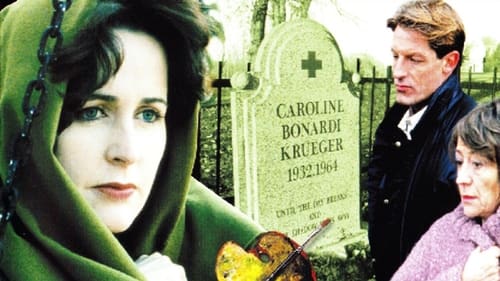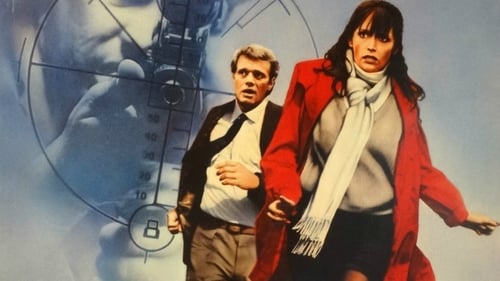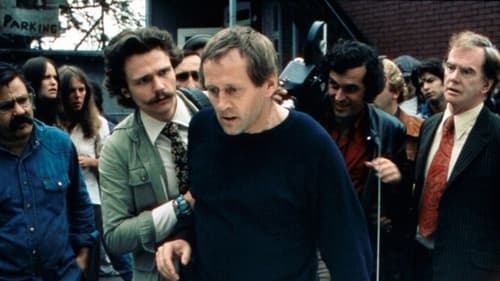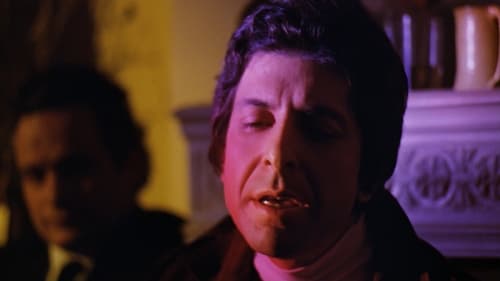Robin Spry
Nascimento : 1939-10-25, Toronto, Ontario, Canada
Morte : 2005-03-28
História
Robin Spry (October 25, 1939 – March 28, 2005) was a Canadian film director and television producer and screenwriter.
Spry was perhaps best known for his documentary films Action: The October Crisis of 1970 and Reaction: A Portrait of a Society in Crisis about Quebec's October Crisis.
Robin Spry was born in Toronto, Ontario to Canadian broadcast pioneer Graham Spry and economic historian Irene Spry.
After studies at Oxford University and the London School of Economics, Spry began his filmmaking career in 1964 at the National Film Board in Montreal, earning a place on its payroll in 1965 and remaining there until stepping down in 1978. While at the NFB Spry built a reputation as a documentarist engaged with the issues of the day, with films on abortion, youth rebellion, and contemporary politics. His Prologue documented the riots at the 1968 Democratic National Convention in Chicago, weaving narrative with archival footage to become, in 1969, the first Canadian film to appear at the Venice Film Festival. His Canadian Film Award-winning documentary Action: The October Crisis of 1970 (1973) used a similar approach to tell the story of the kidnapping of British diplomat James Richard Cross and the murder of Pierre Laporte. Spry also tried his hand at other aspects of the film trade, acting as a producer, filmmaker, screenwriter, actor, cinematographer and film editor, and appearing in several colleagues' films, including Denys Arcand's Québec, Duplessis et après" (1972), reading out sections of the 1837 Durham Report. Spry starred in the 1981 hostage film Kings and Desperate Men.
In the mid-1970s Spry left the NFB to focus on production work, founding Telescene and then, upon its bankruptcy in 2000, continuing to work with other production firms in Montreal. Among the films he produced were Léa Pool's À corps perdu (1988), André Forcier's Une histoire inventée (1990), and John Hamilton's The Myth of the Male Orgasm (1993); he was also responsible for a number of television series, such as The Lost World. Other notable works included the 1995 mini-series, Hiroshima, about the events leading up to the atomic bombings of Hiroshima and Nagasaki, which won a Canadian Gemini Award and was nominated for an American Emmy, as well as earlier films One Man (1977), Drying Up the Streets (1978), and Suzanne (1980). Spry died in an early-morning road accident on March 28, 2005 in Montreal, Quebec, leaving behind a son, Jeremy, and a daughter, Zoé, whom he had fathered by journalist Carmel Dumas (from whom he was divorced at the time of his death).
The first season of Charlie Jade was dedicated to his memory, as mentioned in the credits of the final episode, as was Air Crash Investigation's episode "Mistaken Identity".
Source: Article "Robin Spry" from Wikipedia in English, licensed under CC-BY-SA 3.0.

Producer
Christie Dawson always wanted to be the "cool" teacher. But her world is shaken up after a pupil's crush spirals out of control and he sexually assaults her. Suddenly, her colleagues, neighbors and even her hubby are wondering whether she crossed the line and tempted her student. But school isn't out for Christine just yet she's gonna fight back, and big time!

Executive Producer
Based on the novels by Jack Higgins, Sean Dillon is a maverick British agent who uncovers a plot to take over the presidency of the United States.

Producer
A divorced mother suspects that she and her two children may be in danger because of her insanely jealous new husband

Writer
A divorced mother suspects that she and her two children may be in danger because of her insanely jealous new husband

Director
A divorced mother suspects that she and her two children may be in danger because of her insanely jealous new husband

Producer
In this tragicomedy, Toni is the director of a staged rendition of Othello in Montreal. It is a pet project of his, financed by his loving mafia uncle. Unbeknownst to him, the audiences are also rounded up (and paid) by the same uncle. Some of them have seen every performance of this tragic play, and are understandably bored, so when the backstage romantic shenanigans of the actors result in absurd situations onstage, the audience is delighted. There are a huge number of romantic situations going on in this film at the same time. One of them involves Gaston a somewhat world-weary jazz musician, and Florence, a glamorous middle-aged woman who has been pining for him for years. Another involves to members of the musician's jazz trio. Yet another involves the play's Desdemona, Soledad, the girlfriend of the man playing Othello, who can't keep his hands off his (female) dresser.

Producer
Malarek is a film directed by Roger Cardinal in 1989. Ex-juvenile offender Victor Malarek catches a break when he's hired as a cub reporter for the Montreal Star. After witnessing a cop murder a street kid, Malarek dedicates himself to exposing corruption in the social welfare system.

Producer
Pierre is a Montreal photojournalist who returns from Nicaragua to find that his ten-year menage a trois is over. Haunted by his mid-life crisis, he becomes obsessed with trying to find out why his two lovers, Sarah and David, have left him.

Producer
Canadian businesswoman Dinah Middleton's is devastated when her teenage son, Alex, is killed by a hit-and-run driver. When the police fail to turn up any suspects, she turns private detective to track the killer down. She traces the murderer to New York, only to discover that the crime is not covered by the extradition treaty between Canada and the US. She becomes obsessed with bringing the criminal to justice.

Story
Canadian businesswoman Dinah Middleton's is devastated when her teenage son, Alex, is killed by a hit-and-run driver. When the police fail to turn up any suspects, she turns private detective to track the killer down. She traces the murderer to New York, only to discover that the crime is not covered by the extradition treaty between Canada and the US. She becomes obsessed with bringing the criminal to justice.

Director
Canadian businesswoman Dinah Middleton's is devastated when her teenage son, Alex, is killed by a hit-and-run driver. When the police fail to turn up any suspects, she turns private detective to track the killer down. She traces the murderer to New York, only to discover that the crime is not covered by the extradition treaty between Canada and the US. She becomes obsessed with bringing the criminal to justice.

Story
The CIA, KGB and RCMP are after a lady banker (Kidder) who has a piece of mutated microchip that engages directly with brain cells.

Director
The CIA, KGB and RCMP are after a lady banker (Kidder) who has a piece of mutated microchip that engages directly with brain cells.

Writer
An unhappy married woman has an affair with a violent criminal. She gets pregnant with his baby, but he gets arrested and goes to prison. Now what?

Director
An unhappy married woman has an affair with a violent criminal. She gets pregnant with his baby, but he gets arrested and goes to prison. Now what?

Harry Gibson
A group of terrorists take a radio disk jockey and his wife and child hostage in order to get their manifesto out to the world.

Director
An ex-junkie takes on seedy urban culture to try and locate his daughter.

Writer
In this socially conscious drama, a TV journalist begins investigating a large factory that has been threatening the health of the children who live in the town's poorest, most polluted section. Because of his investigation, he and his family are threatened by company thugs. He gets no help from his TV station as they are loathe to tangle with big business.

Director
In this socially conscious drama, a TV journalist begins investigating a large factory that has been threatening the health of the children who live in the town's poorest, most polluted section. Because of his investigation, he and his family are threatened by company thugs. He gets no help from his TV station as they are loathe to tangle with big business.

Writer
A long and thoughtful look at those desperate days of October 1970, when Montréal awaited the outcome of FLQ terrorist acts. This film puts the October Crisis in the long perspective of history. Compiled from news and other films, it shows independence movements past and present, and their leaders; it reflects the mingled relief, dismay, defiance, when the Canadian army came to Montréal; and it shows how political leaders viewed the intervention.

Director
A long and thoughtful look at those desperate days of October 1970, when Montréal awaited the outcome of FLQ terrorist acts. This film puts the October Crisis in the long perspective of history. Compiled from news and other films, it shows independence movements past and present, and their leaders; it reflects the mingled relief, dismay, defiance, when the Canadian army came to Montréal; and it shows how political leaders viewed the intervention.

Producer
This feature documentary gives voice to various English-speaking groups in Montréal and other places in Québec as they react to the October Crisis of 1970, when Québec nationalism took a violent turn. A British diplomat had been kidnapped, a Québec cabinet minister murdered. The troops were brought in as a safeguard. This film is a vigorous reflection of the discussions and analyses of the situation that went on wherever people gathered, voicing attitudes and fears, sympathies and concerns.

Director
This feature documentary gives voice to various English-speaking groups in Montréal and other places in Québec as they react to the October Crisis of 1970, when Québec nationalism took a violent turn. A British diplomat had been kidnapped, a Québec cabinet minister murdered. The troops were brought in as a safeguard. This film is a vigorous reflection of the discussions and analyses of the situation that went on wherever people gathered, voicing attitudes and fears, sympathies and concerns.

Producer
This film tells the story of a young Montrealer who edits an underground newspaper with help from his female friend and a draft dodger from the United States. Two rival philosophies of dissenting youth become evident in the choices they make: militant protest vs. communal retreat. Including some seminal archival footage of a speech by legendary anti-war activist Abbie Hoffman and bloody rioting during the 1968 Democratic Convention in Chicago.

Director
This film tells the story of a young Montrealer who edits an underground newspaper with help from his female friend and a draft dodger from the United States. Two rival philosophies of dissenting youth become evident in the choices they make: militant protest vs. communal retreat. Including some seminal archival footage of a speech by legendary anti-war activist Abbie Hoffman and bloody rioting during the 1968 Democratic Convention in Chicago.

Assistant Director
This fictional feature follows a twenty-something man who is struggling to define his position in the world in early adulthood. He has left their parents' home but still has not made an home of his own. Our protagonist’s alienation is palpable; for him life is a game, not because he chooses to make it so, but because he is unable to make anything more of it. But for those who befriend him and eventually turn him loose again, his game is not enough.

Director
This short documentary is about Mike Duff, a Canadian motorcycle racer, and the sport that almost killed him. After a near-fatal crash in Japan and extensive surgery and therapy, Duff returned to racing to claim two victories in Canadian races. Though the sport takes its toll on the lives of his friends and fellow competitors annually, the racer explains he can’t give up just yet – not before winning a world championship.

Writer
In the summer of 1967, a hippie group called The Diggers - led by the cool and charismatic 23-year old David DePoe - wanted to turn the street where they resided, Yorkville Avenue in Toronto, into a car-free zone. Fed up with the noise and fumes from cars, DePoe staged a 3-day sit in where the Diggers peacefully occupied the street to petition the Toronto City Council to get what they wanted. To their surprise, the police were ordered to remove them by force by the city officials who wanted to keep the street open as a necessary traffic artery. After being released from jail, DePoe and his group were invited by the fiercely conservative and patronizing Allan Lamport, a member of the Board of Control and former Mayor of the city to a meeting at City Hall to present their case. The climactic battle unfolded there between Lamport and DePoe, who was representing the Canadian Youth Council.

Director
In the summer of 1967, a hippie group called The Diggers - led by the cool and charismatic 23-year old David DePoe - wanted to turn the street where they resided, Yorkville Avenue in Toronto, into a car-free zone. Fed up with the noise and fumes from cars, DePoe staged a 3-day sit in where the Diggers peacefully occupied the street to petition the Toronto City Council to get what they wanted. To their surprise, the police were ordered to remove them by force by the city officials who wanted to keep the street open as a necessary traffic artery. After being released from jail, DePoe and his group were invited by the fiercely conservative and patronizing Allan Lamport, a member of the Board of Control and former Mayor of the city to a meeting at City Hall to present their case. The climactic battle unfolded there between Lamport and DePoe, who was representing the Canadian Youth Council.

Writer
A tale from downtown, where the morality of business is not always as transparent as the shining glass fronts of the office buildings. The film follows the adventures of a young man on the way up, intent on building an image to match his ambitions. In doing so he leaves a trail of hurt feelings among those he uses as steps toward his goal.

Script
In Nigeria, a young Canadian doctor serves in a local mission hospital and learns much from the experience. Stationed abroad under the Canadian University Service Overseas Plan, Dr. Alex McMahon and his schoolteacher wife find every day a fresh challenge. An interesting study of intercultural help.








